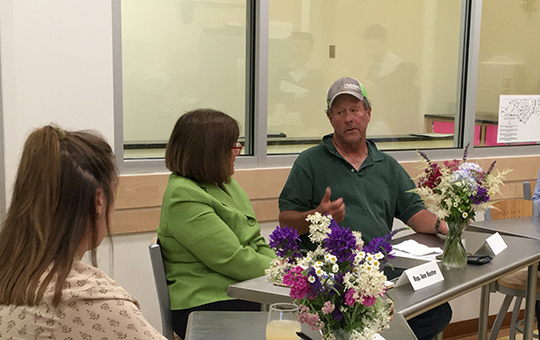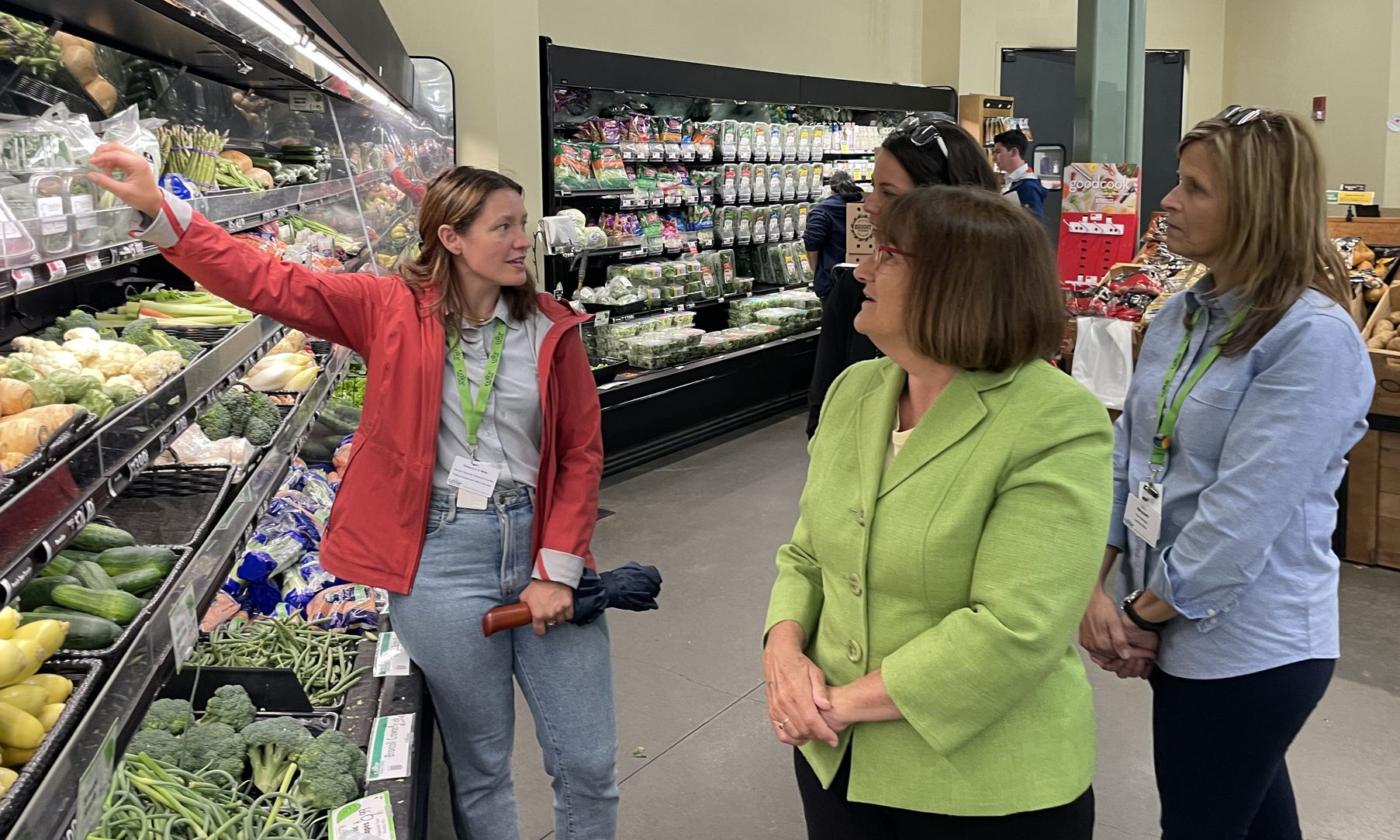Rep. Annie Kuster Chairs Food System Meeting at Hanover Co-op
Topics range from food and nutrition to mental health services for farmers.
July 14, 2023

This week, Congresswoman Annie Kuster (NH-02) met with Hanover Co-op Food Stores and agriculture representatives to tour the cooperative's Lebanon location.
During the visit, the group discussed the upcoming 2023 Farm Bill— currently under consideration by Congress— and how the legislation can advance New Hampshire farmers' and producers' priorities. Specifically, Rep. Kuster highlighted the important role food co-ops play in our food system, and how we can expand access to fresh, local groceries for rural communities in New Hampshire and across the country.
"Access to fresh, affordable, locally-grown food strengthens our economy and helps our communities thrive. But, in rural areas across New Hampshire, access is not always possible. That's why food co-ops are so important," said Kuster. "It was wonderful to meet with the leadership of Hanover Co-op Food Stores today to discuss their operations, hear about their priorities, and tour their facility in Lebanon. I look forward to bringing the conversation we had today back to my colleagues in Congress as we work to finalize the 2023 Farm Bill."
Rebecca J. H. White of Hanover Co-op's Public and Government Affairs Department said, "Our meeting today showcases how connected Representative Kuster is to our local and regional food systems. Her work shapes national farm bill programs that strengthen the many small, independent , and diverse food businesses that bolster our region toward an equitable and secure food future." Mx. White leads the Co-op's local and national Farm Bill advocacy efforts.
Others at the meeting included Pooh Sprague of Edgewater Farm in Plainfield, NH. Sprague expressed deep concern over enforcement of organic standards as exemplified by the certification of hydroponic and confined feedlot operations (CAFOS). Edgewater Farm is a conventional farm that uses Integrated Pest Management (IPM) practices.
Olivia Saunders of UNH Cooperative Extension and Colleen Stewart of NH Food Alliance (NHFA) brought a regional perspective to the conversation. Saunders — a Field Specialist in Fruit & Vegetable Production with UNH Cooperative Extension Food & Agriculture Program — summarized the farmer mental health program she administers. Colleen Stewart, NHFA's Communications Coordinator, organizes and promotes New Hampshire food and food businesses across the state. Primary on Stewart's calendar for the NHFA is NH Eat Local Month starting August 1.
Along with consideration of the Farm Bill was discussion of House Resolution 2720 — a marker bill that seeks to direct agricultural research service to expand organic research and understanding of impactful practices to promote climate and soil health. Hanover Co-op's Allan Reetz detailed the mounting obstacles organic and IPM growers face and urged Rep. Kuster to support H.R. 2720. Ms. Kuster indicated she will co-sponsor the bill. Allan Reetz works on policy matters alongside Rebecca White.
The Hanover Co-op is among 65 national organizations, farms, and businesses speaking out in support of H.R. 2720, commonly known as the Strengthening Organic Agricultural Research (SOAR) Act of 2023. Other local and regional signatories include: Stonyfield, NOFA-NH, NOFA-VT, and the Northeast Sustainable Agriculture Working Group.
Reetz said, "We value the partnership Annie Kuster brings to food and farm issues. With each farm bill, she quickly pinpoints and acts on the needs of local growers, food producers, and people in need of food assistance. That benefits us locally and is respected nationally. "
